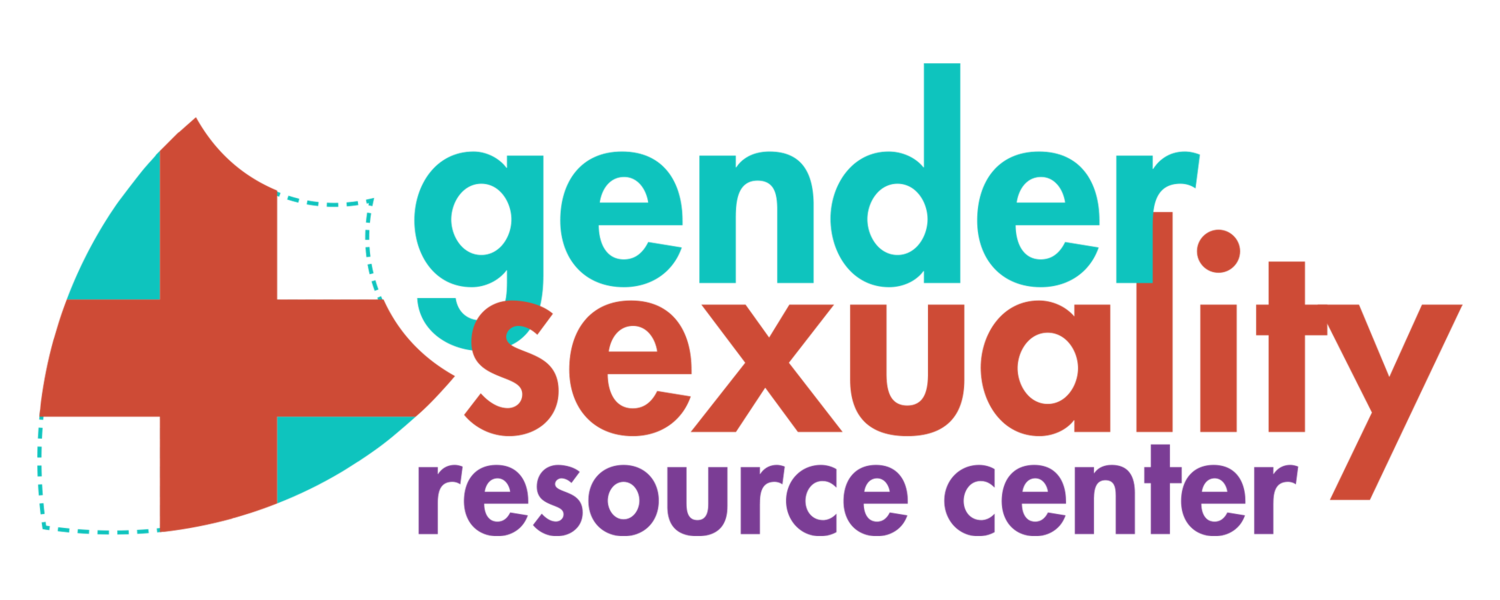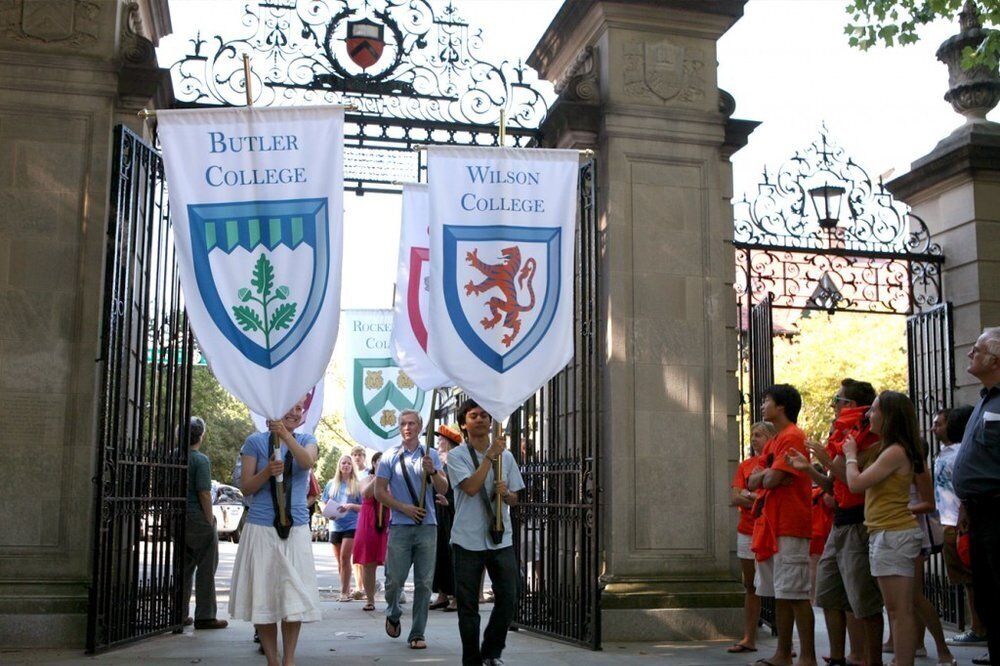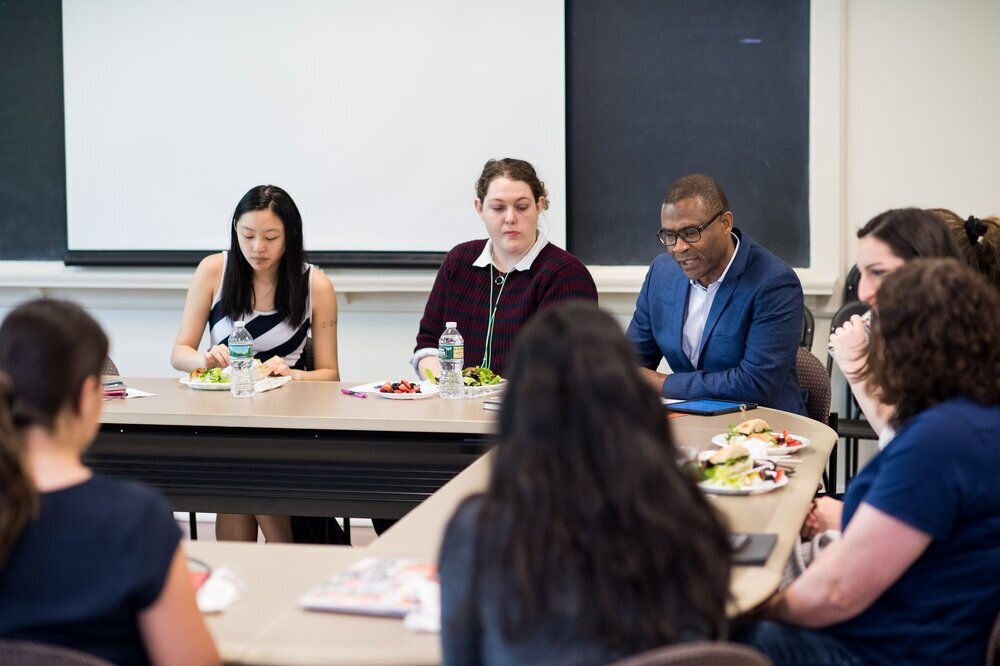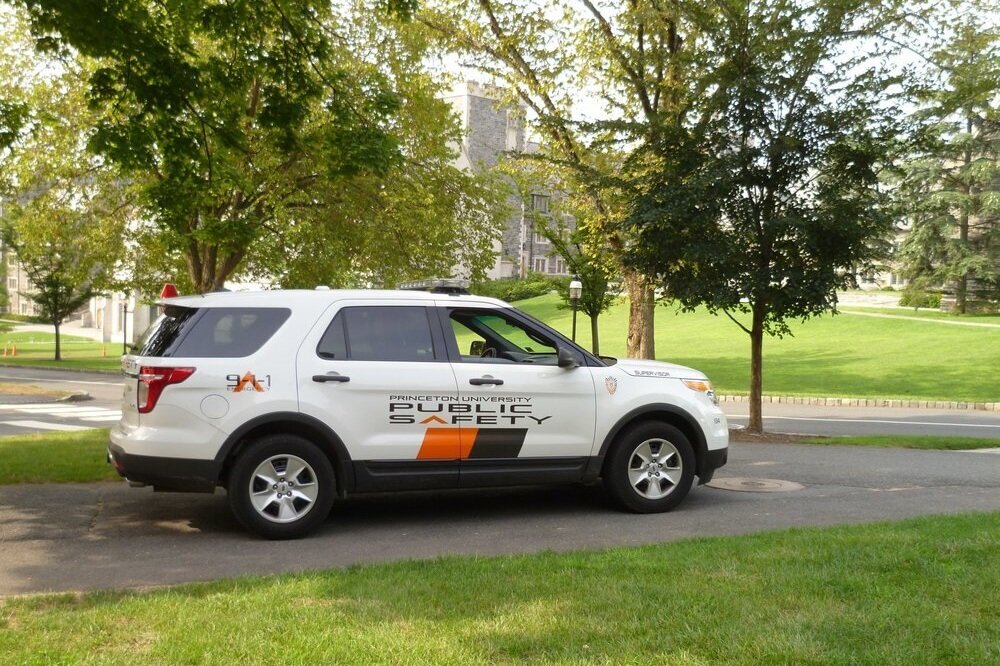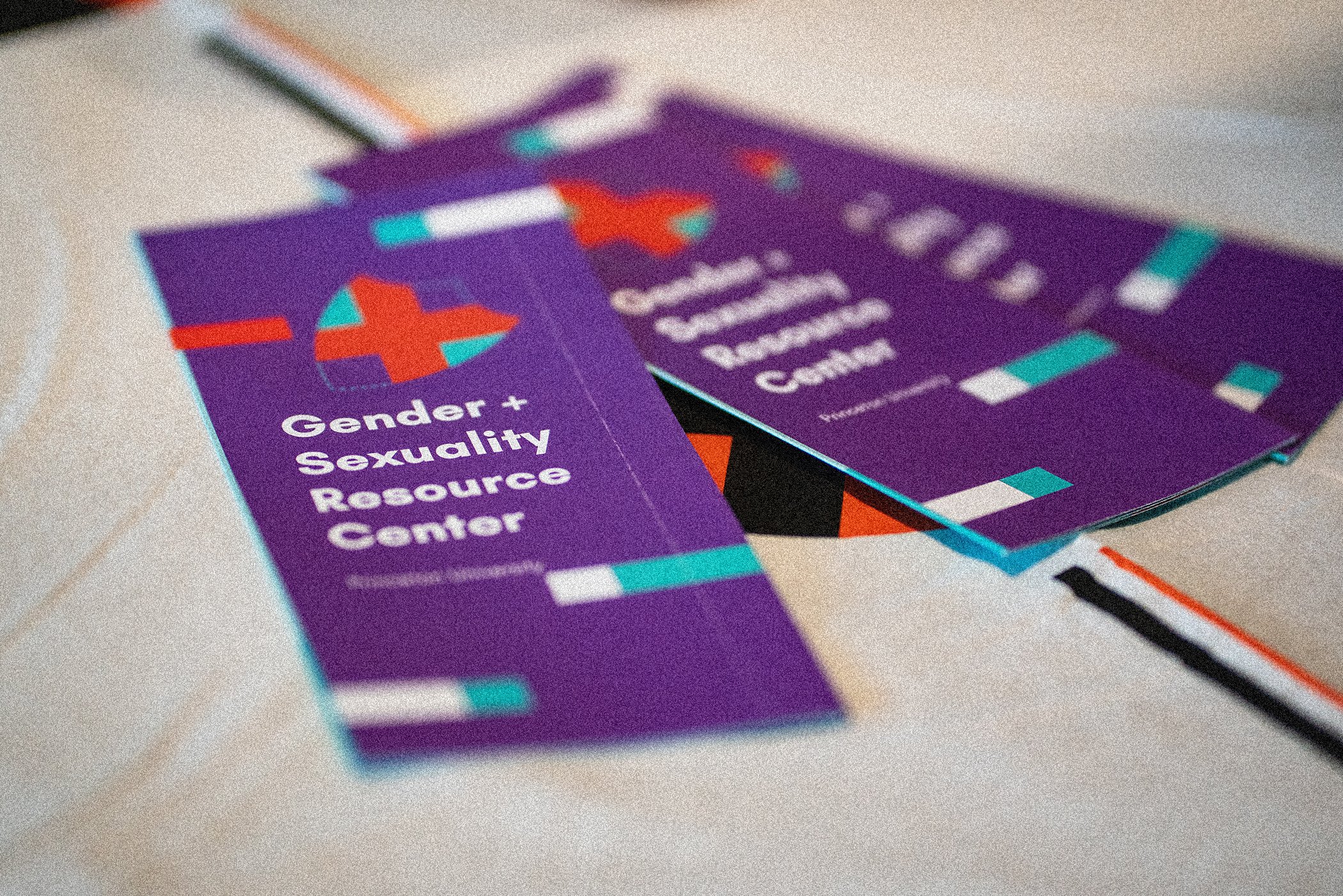
Resources
241 FRIST CAMPUS CENTER
(609) 258-8840
The AccessAbility Center is a new student gathering space on campus designed for universal access and intended to foster conversation about ability, access and difference. The mission of the AccessAbility Center is to provide opportunities for students to actively explore differing abilities, envision disability as part of diversity, and understand how difference can enrich the educational experience and lives of those in our campus community.
58 PROSPECT AVENUE
(609) 258–5494
The Fields Center is in a beautiful building on Prospect Avenue. It supports various student mentorship programs, cultural organizations, and leads the University’s celebration of national history and heritage months.
MCCOSH HEALTH CENTER, 3RD FL
WALK-IN
M-F: (609) 258–3285
24–HOUR: (609) 258–3139
CPS is part of University Health Services, and offers confidential counseling for mental health concerns including depression, anxiety, stress, crisis management, grief, and substance abuse; as well as relationship, sexual, and eating issues.
Directors of Student Life, based in each Residential College Office, support all members of the college community in dealing with personal, social, or health concerns.
CORWIN HALL, ROOM 130
Housed in Corwin Hall, the Program offers undergraduate and graduate certificates, as well as courses that are cross-listed in a number of disciplines. GSS has a vibrant roster of events featuring distinguished speakers, activists, and artists in conferences, panels, performances, lunchtime colloquies, book clubs and workshops.
Photo: Wallace Best, GSS Director with students
The LGBT Center created a map of gender inclusive and single-stall restrooms.
At the Graduate School, we believe that demographic and intellectual diversity drives innovative research and discovery, it expands our capacity for teaching and learning, and it equips us for lives of leadership in an increasingly pluralistic society. To achieve our academic mission, therefore, requires Princeton to identify, attract, and develop the most promising individuals from as many segments of society as possible. To that end, we aspire to be a truly inclusive community in which individuals of every nationality, religion, gender, race/ethnicity, sexual orientation, ability, political viewpoint, socioeconomic status, and veteran status can flourish.
Photo (L-R): Amy Pszczolkowski, Sarah Mullins, and Vanessa Gonzalez-Perez
The Kathryn W. and Shelby Cullom Davis International Center offers specialized support for international students and scholars including resources to help you adjust to your life at Princeton. Their team of dedicated advisors can assist you with questions about your immigration status and your practical adjustment to the United States.
The Men’s Allied Voices for a Respectful & Inclusive Community (MAVRIC) Project is an alliance of Princeton University undergraduate and graduate students, staff, and alumni committed to promoting healthy masculinity and fostering a respectful and inclusive community for all genders through education, mentoring, activism and fellowship. To become a member, visit the MAVRIC website, linked above, or visit their Facebook Page.
EMERGENCIES: (609) 258–3333
NON-EMERGENCIES: (609) 258–1000
DPS is committed to the philosophy of “Community Caretaking” and strives to enhance the living, learning, and working experience at Princeton by serving and protecting the university community.
The Department of Public Safety offers the Rape Aggression Defense System (RAD), a program of realistic self-defense tactics and techniques for women. The course begins with awareness, prevention, risk reduction and avoidance, then progresses to teach the basics of hands-on defense training.
MURRAY-DODGE HALL
Campus chaplains, based in the Office of Religious Life (ORL), care for the spiritual and pastoral needs of students, staff, and faculty through outreach, worship services, retreats, spiritual direction, religious education and faith formation programs. Chaplaincies and groups include Baha’i, Buddhist, Christian, Hindu, Interfaith, Jewish Muslim, Secular, Sikh, and Unitarian.
MCCOSH HEALTH CENTER
1ST FLOOR; APPOINTMENTS
M-F: (609) 258–3141
Confidential source of information, health care & support for individuals & couples. Counseling services include contraception, preconception, sexuality issues, negotiating safer sex, and choosing abstinence. Medical professionals also provide annual exams, testing & more.
MCCOSH HEALTH CENTER,
217; M-F: (609) 258–3310
24-HOUR: (609) 258–3139
The SHARE office supports students, staff, and faculty who have experienced interpersonal violence and abuse; this includes sexual harassment, sexual assault, dating/domestic violence, and stalking. SHARE provides crisis response, advocacy, peer education, referral services and counseling.
Educational Materials
The Gender + Sexuality Resource Center has gathered useful educational materials for anyone—both inside and outside the LGBTQA community—looking to increase their knowledge. Click on any of the links below and a printable pdf will open in another window.
Homophobia and Gender Bias
Harassment based on sexual orientation and gender identity is fueled by homophobia and transphobia. You do not deserve to be harassed and you do not have to handle it alone. The University is committed to creating and maintaining a safe environment for all students, staff, and faculty, and the GSRC and its partners can help you navigate any gender- or sexuality-related bias you may have experienced.
Confidential counselors (e.g., SHARE, the University Health Services Counseling Center, the Ombuds Office, Carebridge, or chaplains in the Office of Religious Life) are available to listen and provide support, and do not conduct investigations, so many students seek out these confidential resources first to learn their options before making a decision about whether to move forward with a formal complaint.
If after speaking with a confidential counselor you wish to lodge a complaint, the confidential counselor will put you in touch with an appropriate University administrator.
Whom Can I Speak to About Harassment?
The Gender + Sexuality Resource Center
gsrc@princeton.edu
Institutional Equity & Diversity
Name: Cheri Burgess
Phone: 609.258.8504
Email: clawson@princeton.edu
Ombuds Office
179 Nassau Street, Suite D
Phone: 609.258.1775
Wokie Nwabueze, Obmuds Officer
Email: ombuds@princeton.edu
The Ombuds office handles all forms of harassment.
SHARE (Sexual Harassment/Assault Advising, Resources, and Education)
McCosh Health Center, Second Floor, Room 217
SHARE after hours location: McCosh Health Center,
Second Floor, Inpatient Services
Jackie Deitch-Stackhouse, Director
Phone: 609.258.3310
Email: jd3@princeton.edu
Public Safety
200 Elm Drive
Phone: 609.258.3134
Email: pusafety@princeton.edu
For anyone wishing to report incidents requiring investigation or police action, contact Public Safety.
The Office of Religious Life
Murray-Dodge Hall
Rev. Dr. Allison Boden,
Dean of Religious Life and Dean of the Chapel
Phone: 609.258.6245
Email: aboden@princeton.edu
Gender Inclusive Bathrooms
There are a number of single-occupancy gender inclusive bathrooms throughout campus. The GSRC and the Transgender Advisory Coalition work in partnership to maintain an updated map that can be found below. This map shows all single stall bathrooms on Princeton's campus and some in the immediately surrounding area and is designed to help Princeton students, faculty, staff, and visitors looking for a private bathroom environment. On the map, colors used differentiate each type of bathroom. Orange markers indicate a gender inclusive restroom. Yellow markers indicate gender inclusive shower rooms.
View Princeton's Gender Inclusive Bathrooms in a larger map
Princeton University is committed to providing an inclusive and welcoming educational and working environment for all members of its community. All members of the campus community and visitors are welcome to use the bathrooms and changing rooms in which they feel most comfortable and that correspond to their gender identity.
If you know of restrooms or showers that are not on the map and/or you find any of the information we report incorrect, please email gsrc@princeton.edu with an update.
Locker Rooms at Dillon Gym
Dillon Gym has six single-space occupancy shower/restrooms, a men's locker room, and a women's locker room. The women's locker room includes several private showers stalls and changing areas, but the men's locker room has no equivalent private spaces. As of December 2016, construction completed in the gym means you no longer have to enter through gendered locker rooms in order to gain access to the fitness center, pool, and other activity spaces.
The six gender-inclusive shower/restroom/changing rooms are located on the A-level of Dillon Gym. Four are in the south corridor and two in the north corridor. These rooms are available to anyone who would like to use on a first-come first-serve basis. The rooms are all wheelchair accessible. Day-use lockers are also available for use of all patrons in the north and south corridors.
In addition, there are two single stall restrooms with a toilet and sink on the A level, behind the weight machine areas. They offer privacy for using the restroom in the Stephens Fitness Center free weights area, but they do not have a shower or locker space. There is also a similar family restroom in the pool area that is large enough to change in and out of clothes.
Gender Inclusive Housing
Incoming First Year Undergraduate Students Applying for Housing
There is a form all first year students will be asked to complete to apply for housing. On the form, there is a question that asks "Would you prefer to live in Gender Neutral Housing if available in your college?" Answer yes and your Director of Student Life (DSL) will work to accommodate you, seeking to match you with another incoming first year student who also selected "yes."
In addition, there is a box near the end of the survey that ask applicants to offer any additional information. This would be a good space to share more about about your housing needs (e.g., a bathroom with a lockable door, a roommate who is a man, etc.).
All incoming students are randomly assigned to one of our six residential colleges, and the residential college staff make the room assignments. Each college has varying room configurations, so the more information you are able to provide the better they are able to place you. If you have questions or want support in reaching out to your DSL about gender-inclusive housing in your college, you can contact Eric Anglero (eanglero@princeton.edu) at the GSRC, and he will work with you and the housing and residential college staff with the placement.
Gender-Inclusive Housing Options
Undergraduate Students: Students participating in undergraduate room draw (sophomores, juniors and seniors) may select roommate groups of their choosing. Students can choose to live in same-gender or mixed-gender housing configurations, and there is no additional stops students need to take if they want to live in mixed-gender housing configurations--you just complete the housing forms you are sent with the names of your planned roommates. Note that no student will be assigned to a mixed-gender housing group unless they have elected to do so.
If you have an urgent or safety need for a private bathroom or single-occupancy bathroom near your room, you will be accommodated as long as you meet Housing deadlines for the pre-draw accommodation process. More information and the application form can be found here.
Graduate Students: Graduate students may access gender-inclusive housing by specifying their desire or need on their housing form; almost all graduate housing can be mixed-gender.
Faculty, and Staff: Faculty and staff in University housing can live with anyone regardless of gender.
More information regarding housing options, floor plans, and room draw can be found at the housing website.The housing department maintains a “continuing dialogue” forum on its website. To submit feedback, comments, or questions related to your housing situation or on-campus housing in general, click here.
Trans at Princeton
Since the early 2000s, members of the Princeton University administration have been working to improve services and support for transgender students as well as streamline processes to make the experience easier for those who want to access any kinds of medical transition. Princeton is considered a leader among colleges and universities for our support for transgender students and was featured in the Advocate as a Top 10 Trans-Friendly University. Although Princeton has many great things to offer, we know that we still have much work to do to further improve our services, resources, and campus climate for trans members of our community. Advocacy for trans student and employee needs will continue to be a priority of the LGBT Center.
The resources below are intended to offer information for you, answer questions you may have, and make the process easier. If you prefer, you may contact Eric Anglero, GSRC Assistant Director and he will answer any questions and help you navigate systems. If you come across any road blocks on campus or know of changes or incorrect information on this page, please let the staff at the GSRC know, and we will look into and follow up with you.
The Trans at Princeton guide is divided into four sections. Please click below to view detailed, up-to-date information on each topic:
Employee Transition-Related Care
